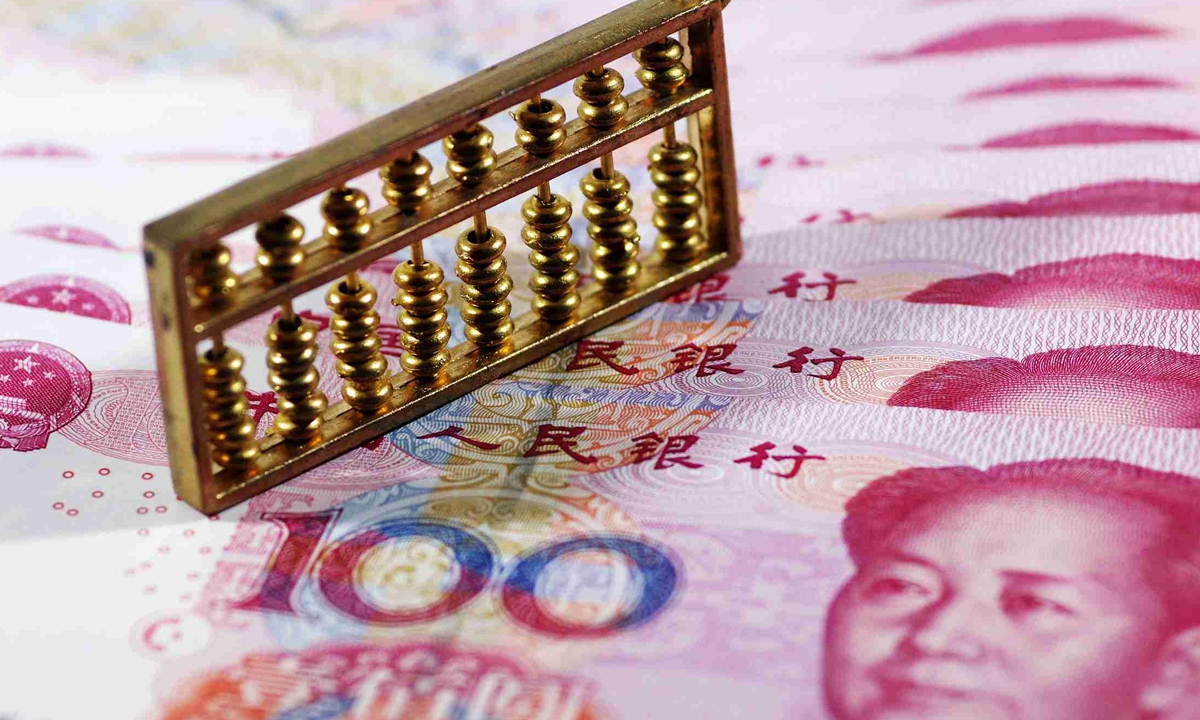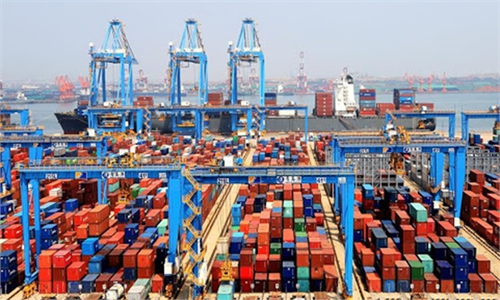China’s central bank reports progress in yuan internationalization, pledges support for growth of offshore yuan market

Chinese yuan Photo:VCG
The People's Bank of China (PBC), the country's central bank, released its 2023 Yuan Internationalization Report on Friday. Among a series of forthcoming measures, the PBC emphasized its commitment to deepening bilateral currency cooperation, fostering the healthy growth of the offshore yuan market, and fostering a virtuous cycle between onshore and offshore yuan markets.
In 2022, the central bank systematically advanced the internationalization of yuan, contributing to the establishment of a new development pattern and high-quality economic growth. The yuan's internationalization has made steady progress, revealing a series of fresh developments and transformations.
The offshore yuan market has also witnessed increased transactions. The PBC jointly signed a standing swap agreement with the Hong Kong Monetary Authority in 2022, and expanded the scale of fund swaps, further deepening financial cooperation between the mainland and the Hong Kong Special Administrative Region (HKSAR).
The HKSAR is the largest offshore yuan business hub in the world. As of end-March 2023, yuan deposits (including certificates of deposit) and outstanding yuan loans amounted to 950.6 billion yuan and 245.4 billion yuan respectively, increasing by 17.6 percent and 37.9 percent year-on-year. Around 75 percent of offshore yuan payments are processed in Hong Kong, official data showed.
Since 2022, yuan clearing banks have been established in Laos, Kazakhstan, Pakistan, and Brazil, optimizing the yuan's overseas clearing network, the PBC report said.
An opening ceremony for a yuan clearing bank was held in Islamabad, Pakistan on Friday, marking the commencement of yuan clearing operations in the country. Governor of the State Bank of Pakistan, Jameel Ahmed, said at the ceremony that the role of the Chinese yuan is continuously growing in the global economy and international financial markets. Utilizing it for settling cross-border trade and investment transactions with China can further enhance mutual ties.
As China's economic strength steadily grows, its position in global industry and supply chains continues to rise, and the functions of the yuan as an international reserve currency and payment currency continue to strengthen. More and more countries are actively promoting currency arrangements and partnerships with China, experts said.
By the end of 2022, the yuan-denominated deposit balance in major offshore markets reached approximately 1.5 trillion yuan, returning to historical highs.
According to a 2022 survey by the Bank for International Settlements, the yuan's share in global foreign exchange trading has grown from 4.3 percent to 7 percent over the past three years, elevating its global ranking from eighth to fifth place.
The capacity of yuan cross-border business to serve the real economy has also strengthened. From January to September in 2023, the total yuan cross-border payment amount reached 38.9 trillion yuan, marking a 24 percent year-on-year increase. Among these, the proportion of yuan cross-border payments in the total cross-border payments in both domestic and foreign currencies for goods trade was 24.4 percent, a 7-percentage-point year-on-year increase and the highest level in recent years.
Moreover, yuan's role as a financing currency has also been enhanced. A number of policies, such as domestic banks securing loans abroad and foreign institutions issuing bonds domestically, have been introduced, contributing to the continuous improvement of the yuan's investment and financing environment.
The yuan has seen constantly increasing use scenarios, efficiency and total volume in recent years, Wang Peng, an associate research fellow at the Beijing Academy of Social Sciences, told the Global Times on Saturday.
On the one hand, the yuan's internationalization will facilitate the advancement of China's economy and society, help boost the efficiency of its outbound trading, and contribute to the global development of Chinese industries, Wang noted. On the other, it could also improve the trading efficiency of countries or other entities that use the yuan for settlement, and help reduce losses caused by exchange rate fluctuations, according to Wang.
The PBC pledged that it will continue to systematically promote yuan's internationalization based on market-driven principles and independent choices by enterprises.
With a focus on facilitating trade and investment, it will further enhance infrastructure construction for yuan cross-border investment and financing, as well as transaction settlements. Efforts will be made to expedite the transformation of the financial markets into a more institutionally open status, creating a more friendly and convenient investment environment.
The central bank will deepen bilateral currency cooperation, support the healthy development of the offshore yuan market, and foster a symbiotic relationship between onshore and offshore yuan markets.
A comprehensive framework for the integrated cross-border flow of domestic and foreign currencies will be established to enhance risk prevention and control capabilities in an open environment, and safeguard against systemic risks, the bank said.

